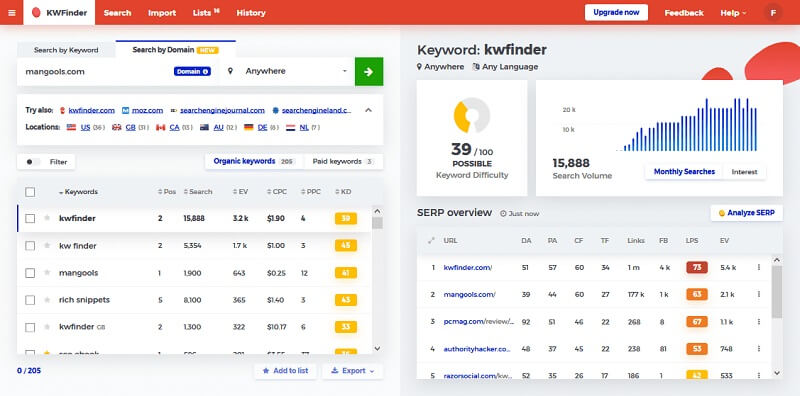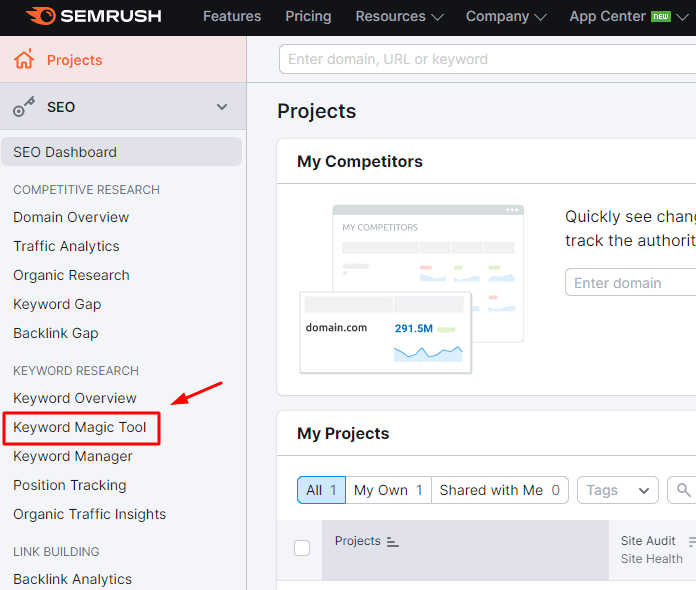What Is A Good Search Volume For A Keyword?

In this article we are going to answer the questions what is a good search volume for a keyword as well as provide some more information on keyword research volume that will help you clear any questions you have about keyword research and keyword search volume.
Keyword research is the process of finding and analyzing actual search terms that people enter into search engines. It’s a crucial part of SEO (search engine optimization).
Your goal in keyword research is to find keywords with high commercial intent that aren’t too competitive. In other words, you want to find keywords that a lot of people are searching for, but that aren’t so competitive that it’ll be hard to rank for them.
What Is Keyword Search Volume?
Keyword search volume is simply the number of times people have searched for a particular keyword over a period of time. It’s usually expressed as an average over a month or year.
For example, if we looked at the keyword “SEO” we would see that it has an average monthly search volume of around 135,000 – according to SEMRush’s Keyword research tool. This means that on average, the search terms ”SEO” is searched 135,000 times every month.

When doing keyword research, it’s important to understand what a good search volume is for a particular keyword. After all, you want to find keywords that are being searched for frequently, but not so much that they’re too competitive.
What is a good search volume for a keyword?
The answer to this question depends on what your goals are.
If you’re just starting out, you may want to target keywords with lower search volumes. This way, you can have a better chance of ranking in the top results.
Usually, keywords with high search volume are more competitive, meaning larger websites with more authority target them. Usually, search engines will rank a ”stronger” website instead of your website even if sometimes your content might be better.
However, this isn’t always the case. It really depends on the competition for the keyword and how well your website is optimized for it. There are some high-volume keywords that aren’t too competitive that you can uncover with the help of a keyword research tool like SEMRush or KWFinder.
It’s also important to consider competition when you’re choosing keywords. If a keyword is too competitive, it may be hard to rank for it. Again, you can use tools like SEMRush or KWFinder to research keywords and see how much competition they have.

New bloggers/websites
To make things even more clear, note that if you are now starting a websites consider these points:
KEY TAKEAWAY
If you are starting a new website, you may want to target keywords with lower search volumes. This way, you can have a better chance of ranking in the top results. As you get more experience and your website becomes more authority, you can target higher-volume keywords.
Experienced bloggers/websites
👉 You might want to check this article on how to find easy to rank, Long Tail Keywords.
What about Zero search keywords? Should you target them?
Zero search keywords are keywords that no one is searching for – at least that what keyword research tools show.
They might be misspellings, or they might be very specific niche terms that only a small number of people would search for.
In my opinion if at least one person has a question about a product, service or situation, there are at least 100 more people across the 7 billion people leaving on this planet who have the same question as that one person (and I am being modest here)..
Also don’t forget that your competition for these keywords will be much more ”thin”. Most probably, the experienced SEOs and large brands will not target these keywords. So you will not have to compete with them but with websites/bloggers of your own level.
There are reports from bloggers who managed to rank for these keywords and drive traffic to their website. If you start ranking for these keywords traffic will definitely start adding up.
Finally, keep in mind that search engines (Google, Bing) take into consideration topical authority as well. That means that..
even if you don’t rank for a keyword or..
you rank but it brings zero traffic to your blog..
but the keyword is related to your niche..
the search engines ”add points” to your ”topical authority” and..
helps you in general with ranking keywords around your topic.
In fewer words, if you publish content all the time for ”parrot cages”, search engines will consider your topical authority high on that subject and they will be more likely to rank you high for any related search terms..
KEY TAKEAWAY
There’s no right answer when it comes to targeting zero search keywords. If you think a zero search keyword could be valuable to your business, then you may want to consider targeting it. My opinion is you should definitely add them to your content strategy.
What are some tools to find keyword search volume and keyword competitiveness.
There are a number of tools you can use to find keyword search volume and keyword competitiveness. Some of the most popular tools include:
TIP: When choosing a keyword research tool, consider your needs and budget. Paid tools will usually provide more data than free tools, but they may not be necessary for all projects.
For example, Long Tail PRO is a paid tool that allows you to find long tail keywords with low competition only.
If you have the budget, a paid tool like semrush or ahrefs will give you the most data. If you are on a tight budget, free tools like Google Keyword Planner or Moz Keyword Explorer can still provide valuable data.
No matter which tool you use, keyword research is an important part of any SEO or SEM strategy. By understanding what keywords are being searched for, you can better optimize your website and content to rank for those keywords and drive traffic to your site.
You might want to check these comparisons articles as well.
✅ KWFinder Vs SEMRUSH: Features, Price, Comparison Table
✅ KWFinder Vs Long Tail PRO [2022]: Which one is the best keyword research tool?
✅ LongTail PRO vs Ahrefs: Unbiased Comparison, Pricing, Features
✅ Long Tail PRO VS SEMRUSH: Unbiased Comparison Pricing, Features
How to Find Keyword Search Volume and Keyword Competitiveness score using SEMrush
In this section, I am going to show you really quick how to research for keywords using SEMRush.
- Create a SEMrush account: The first step is to create a SEMrush account. You can sign up for a free trial here.
- Click on the Keyword Magic tab: Once you have created your account, in the left-hand sidebar, click on the “Keyword Magic” tab.
- Enter your keyword into the search bar: Enter your keyword into the search bar and click “Search.”

- View the Keyword Overview report: Once the results have populated, click on the “Overview” tab to see an overview of the keyword.

This report will show you the following [most important] information:
- View the SERP report: To see what the top 10 results are for the keyword, click on the “SERP” tab.

This report will show you the following [most important] information among others:
TIP: If you trial ends and you haven’t purchased a paid plan from SEMrush you can still use their Keyword Magic Tool for up to 10 searches per day but with limited keyword recommendations.
Final Take
In conclusion, what is considered a good search volume for a keyword depends on your goals and the competition for that keyword.
You may want to target keywords with lower search volumes when you’re just starting out, or keywords with higher search volumes once you have more experience. either way, it’s important to consider both competition and commercial intent when choosing keywords.
If you feel that our article on what is a good search volume for a keyword was helpful, please share it with your followers on social media!


